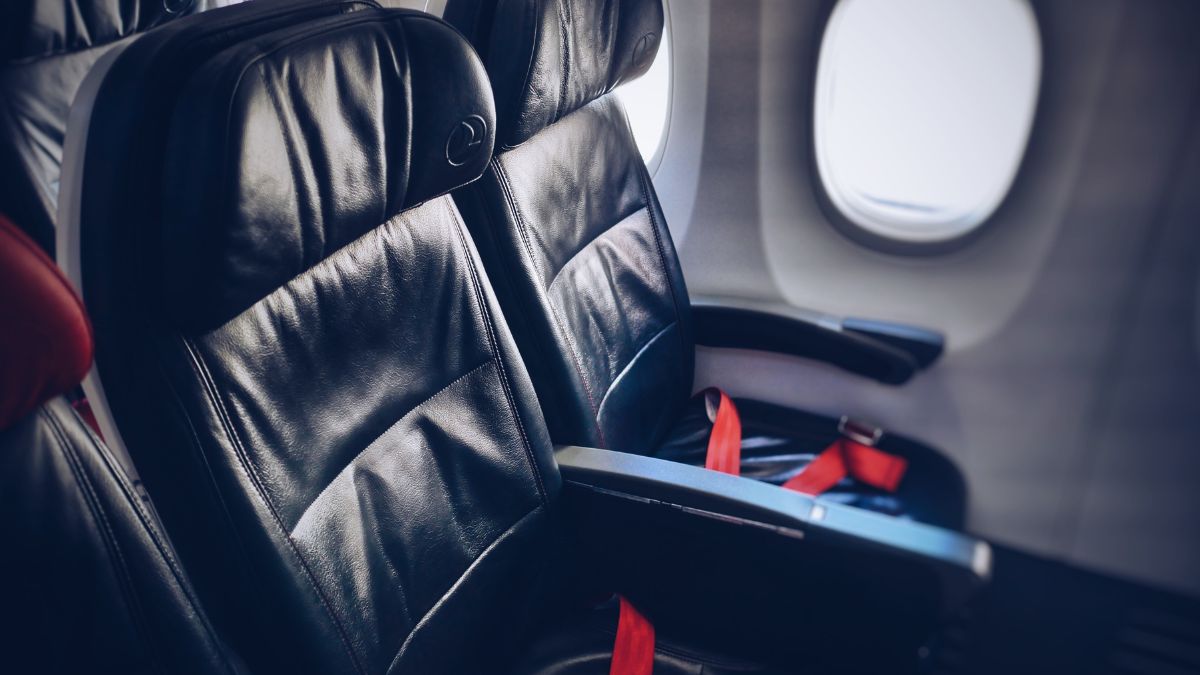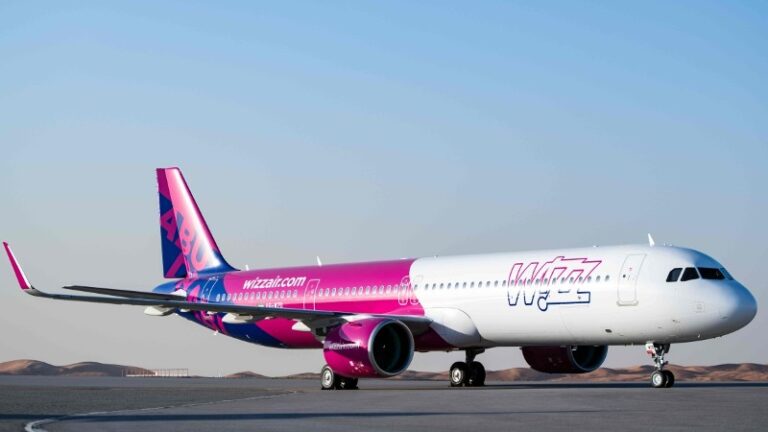What Happens If You Don’t Select or Reserve Seats on a Plane? Exploring the Consequences of Flying Seatless

As participants in Amazon Associates and other programs, we earn from qualifying purchases. This comes at no additional cost to you. For more details, see our Affiliate Disclosure.
Navigating the realm of air travel can sometimes be a daunting endeavor, with each airline offering a diverse array of policies, options, and services. One of the crucial aspects of your travel planning includes reserving seats on a plane, an option offered by most airlines to ensure you and your co-travelers sit together, or perhaps to enjoy specific amenities. But what happens when you choose to skip this step, opting instead to take a chance and let the airline decide your fate? This is what this article will unravel, delving deep into the world of ‘seatless’ flying.
The reality is that not selecting or reserving a seat prior to boarding can lead to a variety of outcomes, some desirable, others not so much. It could mean landing a better spot, like an emergency row with extra legroom, or finding yourself wedged between strangers in the back row, right next to the lavatories.
As passengers, we often find ourselves questioning whether seat selection is worth the extra cost or effort, or if we could make do with the spontaneity of the airline’s allocation. In the following paragraphs, we shall explore these consequences in detail, shedding light on this often overlooked facet of air travel.
Understanding Seat Selection: What Does it Really Mean?
Seat selection is a service provided by airlines that allows passengers to choose their preferred seats on the aircraft at the time of booking or before the departure date. While many airlines offer this service free of charge, especially for long-haul or international flights, others may charge a fee, particularly for budget or low-cost carriers.
The seat you select can significantly impact your flight experience. Different seats come with different amenities and levels of comfort. For instance, aisle seats offer the convenience of moving around without disturbing other passengers, while window seats provide fantastic views and a wall to lean against for a quick nap. Seats towards the front of the plane typically allow for faster disembarkation and less engine noise, whereas seats near the wing are often reported as having the least turbulence. Some passengers might choose bulkhead seats for the extra legroom, while others might want to avoid them due to the lack of underseat storage.
It’s also worth noting that not all seats are always available for selection. Some premium seats (like those in the first class, business class, or seats with extra legroom in the economy class) are reserved for passengers willing to pay an additional fee. Certain rows, particularly the exit rows, are subject to safety regulations and may only be occupied by passengers who meet specific criteria.
To Select or Not to Select: The Dilemma
In the world of air travel, the decision to select or not select your seat often hinges on a few key factors: cost, convenience, and personal preferences. This balancing act, coupled with a multitude of airline policies, can make the choice a difficult one for many passengers.
On one side of the equation, selecting your seat allows you to secure your preferred spot, which can be especially important for families or groups wishing to sit together. Choosing your seat also means that you can avoid less desirable seating locations, such as the middle seat in a row or seats near high-traffic areas like lavatories or galleys. Additionally, early seat selection can often afford passengers the luxury of picking prime spots, like window or aisle seats, or those with extra legroom.
However, on the flip side, some airlines charge additional fees for seat selection, especially if you’re flying economy class. For budget-conscious travelers, these extra costs might not be justifiable. Moreover, there is the element of chance that without a pre-selected seat, you might get allocated a decent spot anyway, perhaps even better than what you could have chosen yourself.
In cases of overbooking, passengers without pre-selected seats might find themselves bumped to the next flight or upgraded to a higher class, which could be viewed as a drawback or a potential perk, depending on one’s perspective.
It’s a gamble, and like any gamble, the outcomes can vary widely. The decision ultimately comes down to a question of personal priorities: Is the certainty of knowing where you will sit worth the potential extra cost, or are you comfortable with a degree of uncertainty for the chance to save some money or maybe even luck into a better seat? This is the essential conundrum faced by passengers deciding whether or not to reserve their seats on a plane.
The Potential Benefits of Not Reserving Your Seat
Choosing not to reserve a seat when booking your flight might seem like an unconventional choice, but it could bring a range of potential benefits.
- Cost Savings: For airlines that charge for seat selection, skipping this step can save you a tidy sum, especially when traveling as a family or group where the costs can multiply.
- Chance of a Better Seat: While there’s no guarantee, there is a possibility that you might get a decent, or even a better seat than you would have chosen yourself. If premium seats (those with extra legroom or seats in business class, for instance) haven’t been sold out by the time of the flight, airlines may assign these to passengers without pre-selected seats.
- Possible Upgrades: In cases of overbooking, or if a passenger with a special need requires your seat, airlines may upgrade you to a higher class of service. This scenario is unpredictable, but it’s always a pleasant surprise when it occurs.
- Adventurous Element: For those who like a bit of unpredictability, not knowing where you’ll sit until the last minute adds an element of surprise to your journey. Every flight could be a completely different experience!
Possible Downfalls of Flying Seatless
While there may be potential benefits to not reserving a seat, there are also several potential downfalls that passengers should consider before making this choice.
- Risk of Less Desirable Seats: If you don’t reserve a seat, you run the risk of getting assigned one of the less desirable spots on the plane, such as a middle seat, a seat in the back row close to the lavatories, or a seat that doesn’t recline.
- Separation from Travel Companions: If you’re traveling with family or in a group, not reserving seats could mean that you’ll end up scattered throughout the plane, as you’ll be assigned whatever seats are left.
- Overbooking Consequences: If a flight is overbooked, passengers who haven’t reserved a seat could be among the first to be bumped to a later flight. While airlines usually offer compensation for this inconvenience, it can still disrupt your travel plans.
- Last to Board: Without a reserved seat, you might be among the last to board the plane. This could mean less overhead bin space for your carry-on luggage and potentially a longer wait to disembark.
- Added Stress: For many passengers, the uncertainty of not knowing where they’ll be seated can add an extra layer of stress to the travel experience. This is particularly true for those who have specific needs or preferences when it comes to seating.
How Airlines Determine Unreserved Seating
Unreserved seating, commonly referred to as seat allocation, is managed through a complex system designed to optimize passenger distribution and overall satisfaction. Here’s a simplified overview of how airlines typically determine seating for those who have not pre-selected their seats:
- Airline Algorithm: Airlines use sophisticated computer algorithms to allocate seats. These systems consider factors such as the aircraft’s balance and safety regulations, passenger needs, and maximization of available space.
- Check-In Order: Seat assignment often follows the order of check-in. The earlier you check in, the better your chances of securing a more desirable seat. Late check-in might result in less optimal seats.
- Frequent Flyer Status: Airlines may prioritize their frequent flyers or loyalty program members when assigning seats. Passengers with higher status can be more likely to secure preferable seats.
- Special Needs: Airlines consider passengers with special needs when allocating seats. This could mean families with small children, elderly passengers, or passengers with disabilities are given priority for certain seats.
- Overbooking and Adjustments: Airlines sometimes overbook flights, anticipating some passengers won’t show up. When more passengers show up than there are seats available, airlines have to juggle seat assignments, potentially resulting in seat upgrades for some.
- Last-Minute Changes: Unforeseen circumstances like aircraft changes can affect seating as well. In such cases, passengers may be reassigned to different seats based on the new aircraft’s seating configuration.
Remember, policies can vary widely from one airline to another, and this is a general overview rather than a definitive guide. Always check with your specific airline if you have questions about their seating policies.
Impact on Group Travelers: The Challenge of Staying Together
Traveling in a group, whether it’s with family, friends, or colleagues, brings its own set of joys and challenges. One of those challenges is navigating the world of airline seating. For group travelers, not reserving seats can have a specific set of implications.
- Potential Separation: The most apparent impact is the risk of being seated separately. If seats are not pre-selected, group members might be assigned to whatever seats are available, which could potentially be scattered throughout the plane. For families with young children or groups wanting to use travel time for discussion or companionship, this separation could be a significant downside.
- Limited Choices Later: As others choose their seats, the pool of available spots gradually shrinks. This effect is more pronounced in larger groups where finding adjacent seats can become challenging, if not impossible, especially for last-minute check-ins.
- Difficulty Coordinating Needs: Different group members might have different seating preferences or needs. Some might prefer window seats, others may need extra legroom, and some may want to be close to the restroom. Coordinating these needs without seat selection becomes a game of chance.
- Increased Stress: The uncertainty of not knowing whether the group will be able to sit together can add an extra layer of stress to the travel experience, which could potentially start the trip on a sour note.
Despite these challenges, some group travelers still opt not to reserve seats due to cost considerations, particularly if the airline charges additional fees for seat selection. However, it’s crucial to weigh these costs against the potential inconveniences and decide what will make for the most enjoyable and least stressful travel experience for the group.
The Role of Overbooking and How it Affects Seatless Passengers
Overbooking is a common practice in the airline industry. Airlines, predicting a certain percentage of no-shows or last-minute cancellations, often sell more tickets than there are seats available on a flight. While this strategy maximizes profitability and ensures that flights are as full as possible, it can lead to complications for passengers, particularly those without reserved seats.
- Risk of Being Bumped: If a flight is overbooked and everyone shows up, airlines need to ask for volunteers to take a later flight. If there aren’t enough volunteers, they may involuntarily bump passengers, often starting with those who don’t have a pre-selected seat.
- Last-Minute Seat Assignments: In the case of overbooking, seat assignments for those who haven’t reserved a seat may be left until the very last minute. This delay can add stress to the travel experience.
- Potential Upgrades: On a more positive note, overbooking can occasionally work in favor of passengers without reserved seats. If the economy class is overbooked but there’s space in business or first class, airlines may upgrade a few lucky passengers.
- Compensation: While being bumped from a flight can be inconvenient, airlines typically offer compensation in these situations. This compensation might include vouchers for future flights, cash, meals, hotel accommodations, or upgrades on later flights.
While overbooking can create uncertainty, it’s important to remember that these situations aren’t the norm for most flights. If you’re a traveler who likes to have your plans settled well in advance, you may prefer to reserve your seat rather than risk the potential complications of overbooking. However, if you’re flexible with your travel plans and open to potential last-minute changes, you might find the possible benefits, like potential upgrades, worth the risk.
Strategies for Navigating the Seatless Route
If you’ve decided to forgo reserving your seat in advance, there are several strategies you can use to maximize your chances of having a positive flight experience.
- Early Check-In: Many airlines assign seats in the order of check-in. Checking in online right when the check-in window opens (usually 24 hours before the flight) can give you an edge in getting a better seat.
- Be Flexible: Keep an open mind and be prepared for different outcomes. You might end up with a less desirable seat, or you might get lucky and land a premium spot.
- Communicate Your Needs: If you have specific needs (such as extra legroom, or a seat away from the aisle due to a sleeping child), don’t hesitate to politely communicate these to the airline staff at check-in or at the gate. While they can’t guarantee anything, they often do their best to accommodate passenger needs.
- Frequent Flyer Programs: Joining an airline’s frequent flyer program can sometimes give you an edge, even if you don’t have elite status. Some airlines give priority to their members during seat allocation.
- Arrive Early at the Gate: Being early at the gate gives you the opportunity to talk with gate agents if there are any issues with your seat or if you wish to request a change. They have the final say over seating arrangements and can sometimes make last-minute adjustments.
- Be Polite and Patient: Airline staff are more likely to go the extra mile for passengers who treat them with respect. Remember, they often have a tough job and a little kindness can go a long way.
Choosing to fly without a reserved seat can be a bit of a gamble, but with these strategies in hand, you can navigate the seatless route with a little more confidence and potentially turn an unpredictable situation into a satisfying travel experience.
Expert Tips: Making the Most of Your Seatless Experience
Embarking on a seatless journey can seem daunting, especially for first-time flyers or those used to traditional seat reservation. However, with a few expert tips under your belt, you can turn this into a positive experience and possibly even enjoy some unexpected perks.
- Be Informed: Always understand the specific airline’s policies regarding seat assignment. This information can usually be found on their website or by contacting customer service.
- Leverage Technology: Many airlines have apps that allow you to check-in and view your seat assignment as soon as it becomes available. This can help you stay informed and manage any potential issues more proactively.
- Travel Light: If you’re likely to be one of the last to board, overhead bin space may be limited. Try to minimize your carry-on luggage to avoid hassles.
- Kindness Goes a Long Way: Treat airline staff with respect and kindness, whether you’re asking for a seat change or dealing with unexpected issues. You’d be surprised how often this approach can lead to positive outcomes.
- Prepare for Various Outcomes: Have a plan in case you are assigned a less desirable seat or, in rare cases, bumped from a flight due to overbooking. This could include bringing noise-cancelling headphones if you end up near the engine, or having flexible travel plans if you get bumped to a later flight.
- Take Advantage of Last-Minute Upgrades: Sometimes airlines offer unsold premium seats at a discounted rate at the check-in or at the gate. Keep an eye out for these last-minute opportunities.
- Stay Positive: Remember, attitude can significantly impact your travel experience. Even if you end up in a middle seat at the back of the plane, maintaining a positive attitude can help ensure your journey starts and ends on a high note.
With these expert tips in mind, you can navigate the seatless experience like a pro, making the most of the opportunities it presents and managing any potential challenges with grace and ease.
To Reserve or Not to Reserve – That is the Question
When it comes to flying, the decision to reserve or not reserve your seat is a personal one, steeped in various factors like cost, convenience, and personal preference. The act of selecting your seat in advance offers the comfort of certainty – you know where you will be sitting, who you will be sitting next to, and whether you’re near the front or back of the plane.
This can be a significant advantage, especially for those traveling in groups or families who want to ensure they are seated together, or for individuals who have specific seat preferences such as window or aisle, front or back, or near or far from the lavatories. In short, pre-selection affords you control over your flight experience.
On the other hand, opting not to reserve a seat could save you some money if the airline charges for seat selection, which could be particularly beneficial for budget-conscious travelers. It also opens up the potential, albeit small, for unexpected perks such as being assigned a premium seat or even being upgraded to a higher class due to overbooking or other operational needs.
The risk, however, is that you may be assigned a less desirable seat, or in rare instances, be bumped to another flight if the one you’re on is overbooked. Hence, the decision to reserve or not comes down to what matters most to you – the assurance of knowing exactly where you’ll be seated, or the possibility of saving money and perhaps even lucking into a better-than-expected seat.






